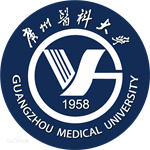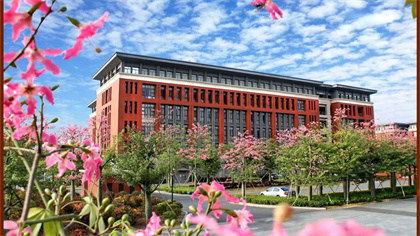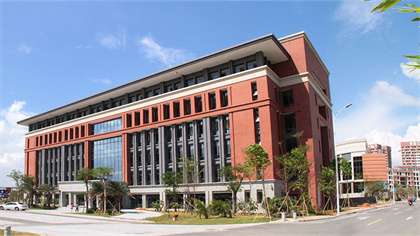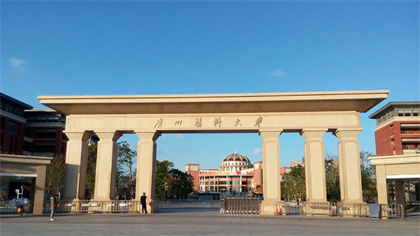
- Location:
- Search By School Name
- Details

Guangzhou Medical University
School profile
-
Location:
Guangzhou, Guangdong
-
Population:
14000
-
Extent:
372300
Why choose Guangzhou Medical University ?
Guangzhou Medical University (GMU) was founded in 1958. It is a higher education institution based on the characteristics and strengths of its medical education. GMU offers a full range of programmes at undergraduate and graduate levels. GMU was included on the List of Double First-Class Initiative in 2022.
GMU has two main campuses. The Yuexiu campus is located in the downtown centre of Guangzhou, near Liuhua Lake Park and Yuexiu Mountain. The Panyu Campus, a new 247 acre campus, is situated in Panyu District near the Pearl River, an ideal place for learning and research.
GMU owns 25 teaching faculties, 27 research institutes, and 14 affiliated hospitals. GMU boasts one national medical centre, one national clinical medical research centre, one state key lab, 12 provincial/ministerial key labs, 5 provincial/ministerial research centres for engineering technology (engineering labs), one provincial/ministerial collaborative innovation centre, one national university science park cultivation base, and 32 municipal key laboratories.
GMU owns one national key discipline, 7 provincial /ministerial key disciplines, and 33 municipal key disciplines. Clinical medicine is enlisted in the Double First-Class Initiative. Ten disciplines enter the top 1% of ESI (Essential Science Indicators) global ranking, including Clinical Medicine, Pharmacology & Toxicology, Molecular Biology & Genetics, Biology & Biochemistry, Immunology, Neuroscience & Behavior, Microbiology, Psychiatry / Psychology, Materials Science, and Chemistry. Clinical Medicine enters top 1‰ of ESI global ranking. GMU is ranked 72nd in mainland China according the ESI comprehensive ranking.
GMU owns 24 national key clinical specialties, 94 provincial key clinical specialties. Among them, respiratory diseases ranks first, allergy ranks third , pediatric surgery ranks fourth, thoracic surgery ranks fifth, pediatric internal medicine ranks sixth, and psychiatry ranks sixth in China.
A total of 8,587 faculties are working at GMU, including recipient of Medal of the Republic, member of the Chinese Academy of Sciences, member of the Chinese Academy of Engineering, Cheungkong Scholars, recipients of National Nature Science Fund for Distinguished Young Scholars, selected candidates for New Century Talents Project, national top instructors, national experts with outstanding contribution, and the State Council Special Allowance experts. The faculty is comprised of 683 supervisors for PhD candidates and 1,339 supervisors for master students.
GMU is listed as the first batch of universities to pilot the Excellent Doctors Training Programme. We are dedicated to training health professionals with social responsibilities, excellent professional expertise, innovation and hands-on skills. GMU attaches importance to all-round development of its students. We offer 22 undergraduate programmes, covering 5 categories of disciplines including medicine, science, management, engineering and law. Among them, 17 are recognised as national first-class undergraduate programmes.
GMU has one national clinical teaching and training demonstration centre, one national modern industry college, one national virtual simulation experimental teaching centre, 2 national virtual simulation experimental projects, and one national off-campus practical teaching base for college students, one provincial virtual simulation experimental teaching demonstration centre, and 12 provincial experimental teaching demonstration centres.
GMU has one national-level teaching team and 17 provincial-level teaching teams. There are 104 excellent national-level and provincial-level courses, including 5 national first-class undergraduate courses and 63 provincial first-class undergraduate courses.
GMU owns a postdoctoral mobile station in clinical medicine. GMU is entitled to confer doctoral degrees covering 5 first-level disciplines (including 1 professional doctoral degree) as well as master degrees covering 9 first-level disciplines and 6 professional master degrees. There are more than 14,000 full-time undergraduate and graduate students. In the past five years, the overall employment rate of graduates has ranked top among medical schools and universities in the province.
From 2017 to 2021, GMU has undertaken more than 2,500 government sponsored research projects at the municipal level or above, among which the number of projects funded by the National Natural Science Foundation has been ranked top 100 in China for years. GMU won 5 national science and technology awards and more than 20 science and technology awards at provincial (ministerial) level. The University has published more than 10,000 SCI papers in world-renowned journals including Nature, Science, New England Journal of Medicine, Cell and Lancet. Two achievements were selected in list of top ten scientific and technological progress of institutions of higher Learning in China, one was listed as top ten scientific and technological news of China.
As a university with global vision, GMU has carried out extensive collaborations in research, teaching, and training with renowned universities in the United States, Canada, United Kingdom, France, the Netherland, Ireland, Australia, New Zealand, and Korea. GMU has established the Sino-French Hoffmann Institute with Professor Jules Hoffmann, a French Nobel laureate. We also have good partnership with institutions in Hong Kong,Macau and Taiwan.
GMU has been offering clinical medicine programme to international students since 2010. At present, there are about 300 international students from 31 countries in Asia, Europe, North America, Africa and Oceania, studying for bachelor's, master's and PhD degrees in the university.
For six decades, GMU has passed on its legacy and has shaped the campus culture based on the spirit of GMU and Nanshan Spirit. The spirit of GMU means that faculty and the students should be hard working, entrepreneurial, down-to-earth and pioneering. The Nanshan Spirit features patriotism to take on social responsibilities, professionalism to seek the truth and a commitment to excellence. We have shaped our values which attach importance to professionalism and expertise, integrating medicine and humanities and putting the faculty and students first. GMU stays relevant with regional social and economic development in talent training, scientific research and health care. We have played an important role in major public emergencies such as fighting against SARS, prevention and control of Ebola as well as Convid-19.
Positioned in Guangzhou, GMU actively participates in the development of Guangdong, aligns with our national development strategy, and strives to become more international. GMU will continue to advance the university with developing quality disciplines, employing top faculty and building on strengths and innovation. Our goals are to become a top independent medical school and a first-class medical university with distinctive characteristics and strengths in China. GMU is committed to making greater efforts in education, scientific research, health care and cultural legacy innovation for the future of China and the world.
How to apply?
-
Step1
1Complete Application
Form Online -
Step2
2Upload Required Application
Documents -
Step3
3Pay Fees/Send to University -
Step4
4Track Admission Status




















